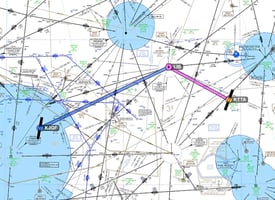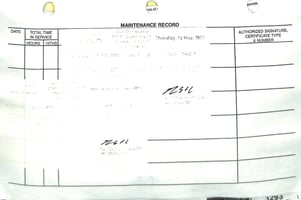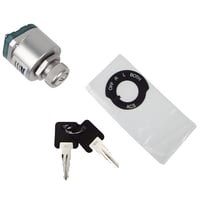“Within the preceding 24 calendar months, each static pressure system, each altimeter instrument,...
Are You Compliant with the FARs?

We've recently discovered an epidemic that is so detrimental, we had to share. We hope this helps you dodge this mistake, whether you use PlaneLogiX or not!
A new customer of ours recently signed up to have his/her inspections and parts tracked after we transcribed all of his/her maintenance records. This is wise to do as it greatly simplifies maintaining your airplane, and helps you understand if it is airworthy to fly in just a few seconds, all in one place.
After we had completed the work for this customer, we noticed a significant problem. The customer, who had been flying regularly, had no evidence of having the FAR 91.207(d) ELT Inspection complied with for the past few years. After closer inspection, we noticed the reason - and it really is a first for us. We found that for every annual, the maintenance shop conducting the annual sent the ELT unit off to a neighboring avionics shop to have it inspected. The avionics shop then sent it back to the first shop, but neither shop attested to an ELT test in accordance with FAR 91.207(d). This is crucial!
FAR 91.207 Section D
Each emergency locator transmitter required by paragraph (a) of this section must be inspected within 12 calendar months after the last inspection for-
- Proper installation;
- Battery corrosion;
- Operation of the controls and crash sensor;
- The presence of a sufficient signal radiated from its antenna.
Notice that we highlighted the first item. The reason we did this is because the mechanic inspecting the ELT can only sign off on FAR 91.207(d) if he or she is also the person who installs (or oversees and verifies the install of) the ELT that was inspected. In this real life scenario, the reality was this (which we learned by calling the shops on behalf of our client): one mechanic inspected the ELT in one location, and another mechanic installed it in another. The first mechanic doing the inspection did not get to oversee the installation, and the second mechanic doing the installation did not get to oversee the inspection. Had either mechanic actually signed off on FAR 91.207(d), it would have been a lie and a large risk for the mechanic to take.
So if the mechanics did the right thing by not signing off on FAR 91.207(d), what's the problem?
The reason this is such a big problem, and why it is an epidemic (and hopefully not a pandemic!), is because neither maintenance shops communicated with one another to make it clear that neither shop intended to actually sign off on FAR 91.207(d). Meanwhile, the shop doing the annual has mechanics signing off on airworthiness attestations, sending planes back out for service, and rinsing and repeating for years even though these airplanes are not technically legal to fly!
Why should I, the owner, care?
As the owner, you should care the most! While the maintenance shops in question certainly have a big liability and oversight issue that needs to be resolved ASAP, the PIC (pilot in command) of this airplane is ultimately responsible for checking the airworthiness of the aircraft before each flight. Checking the logbooks is crucial, and using PlaneLogiX is the easiest way to get this job done without actually needing the records in front of you. Can you imagine the ramp check (however unlikely) for this owner before using PlaneLogiX? PlaneLogiX catches big errors like these, and smaller ones too.
Final Thoughts
This example may seem overly nit picky or technical, and that's a fair reaction. You also may wonder if using PlaneLogiX results in grounding your airplane if something like this is found. The answer to the grounding question is that we do not ground airplanes; we provide the tools and means for the owner/operator to have improved oversight for the maintenance of the airplane. What the owner/operator decides to do with this information is up to them.
As for this not seeming important enough or overly technical, that's for each reader to decide. Is it likely that the FAA would give you a difficult time if this happened to you? Hopefully and probably not. But it is possible that you could be dealing with a headache that you just don't need, and which could be easily avoided (especially if you had a helping hand either from our team or using our tools). Finally, if this discrepancy seems small or insignificant to you, keep in mind that we have found more significant discrepancies that would be a big deal to anyone. We plan to write about those in more detail in a subsequent post.



